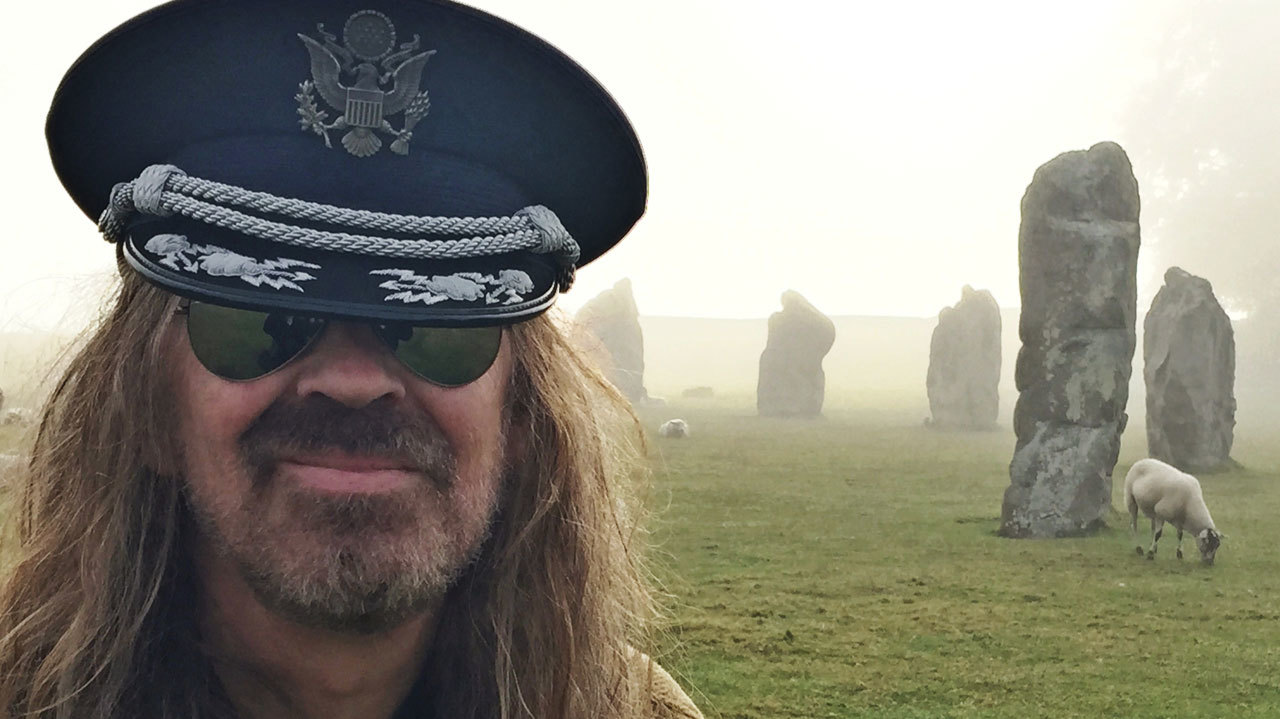Julian Cope is looking forward to his latest tour, which includes an in-the-round show at the Roundhouse in London, the spiritual home of psychedelic music. “I like the cut of that place’s jib,” he says. “It’s like a living museum, it’s temple-like.”
Your forthcoming album is called Drunken Songs. What can you tell us about it?
I stopped drinking in 1983, but that ended when I was in a remote village at the foot of Mount Ararat in Armenia, doing a book on ancient Europe, and the locals forced me to drink nine double shots of mulberry vodka. When I came back to Britain all bets were off. So I started writing songs from the point of view of a very buoyant drunk. Ultimately I’m a beerist from the North.
What else do we need to know?
The album comes out on vinyl in March, and side two is just one long eighteen-and-a-half-minute track. It’s the most drunken song ever committed to plastic.
This year marks the twenty-fifth anniversary of your watershed album Peggy Suicide. Could you be tempted to go out and play it from start to finish?
No, because I’m an obstreperous little bastard. I can’t be a party to simple recreating something.
How much money would it take to get the Teardrop Explodes back in a room together?
It could only happen as The All-New Adventures Of The Teardrop Explodes’. You’d need a young version of me in a flying jacket and very young guitarist promoted from being a tea boy. That’s how these reunions work, isn’t it? Ultimately it wouldn’t work.
Why not?
Because people think we were a psychedelic band. No we weren’t, we were very contemporary. We just happened to be on acid and nobody else was.
Rock’n’roll isn’t the force it used to be. We have faith in Julian Cope. How would he fix that?
Rock’n’roll has always spent time in the doldrums – remember Pickettywitch getting to number one? All we need to do is remind ourselves that Edisonion rock’n’roll [a reference to inventor Thomas Edison] has informed us and will continue to inform us. We’ve just got to decide whether we want it or not.
Last year was terrible for deaths in rock’n’roll. Did losing Lemmy, Bowie, your old mate Pete Burns and others make you consider your own mortality?
I think about death all the time. You get older than twenty-seven and you think: “Fuck Jim Morrison, I’m gonna live.” I’m happy being around as a sensible archetype. I like this period [in my life]. Even if I die the day after tomorrow, at least I’m going deluded. I’m doing art that is true to what I believe, which is being a herald of tomorrow.
The tour ends on February 26.

